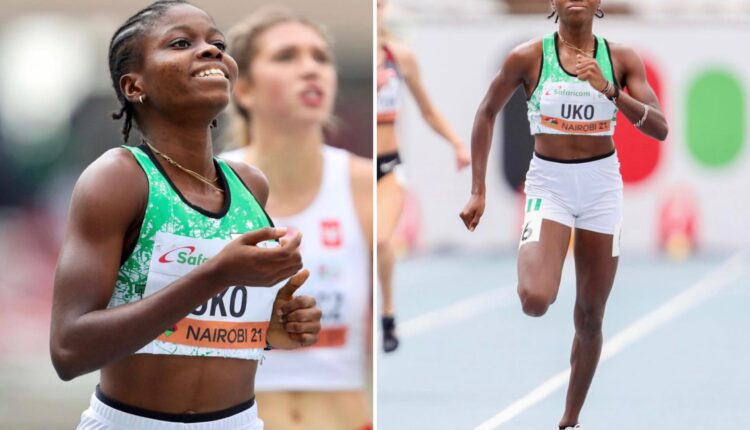After breaking an anti-doping rule, Nigerian athlete Imaobong Nse Uko has maintained that she is not at fault.
Imaobong Nse Uko was convicted by the Athletics Integrity Unit of breaking its anti-doping policy on June 5, 2024. She was on the AIU June 2025 punishment list and has been suspended for two years.
The specifics of the offense were not disclosed by the AIU, but it is classified as a non-doping violation, like whereabouts failures.
As a result of this sentence, Uko will be barred from all professional competitions from the date of the infringement until June 23, 2026.
The 2021 World Under-20 triple gold champion Uko responded to the sentence by accusing the Athletics Federation of Nigeria of being responsible for the two-year ban. She blamed her anti-doping rule breach on the body’s carelessness and corruption.
She claims that the problem started when she encountered technological issues when utilizing the online whereabouts system that athletes are expected to use in accordance with drug-testing standards.
Read Also: Tinubu Demands Equity for Developing Nations at 17th BRICS Summit
“A flawed system and a corrupt federation that has failed to support” her when she needed it most, according to Uko, are to blame for the current state of affairs.
Despite many attempts to get in touch with the federation officials, she accused the AFN of failing to assist her.
“I battled for months with an internet platform designed to disclose my location, which is an essential need for athletes who are subjected to drug testing. I kept contacting for assistance, but I kept getting excuses about network problems and being instructed to wait,” Imaobong Nse Uko posted on Instagram. “I felt abandoned by the very organization that is meant to protect and support athletes because my messages were frequently ignored.
“I was saddened when I was finally suspended. I questioned the federation representatives throughout the hearing, demanding to know why they failed to help me with my technical issues. They said I had submitted my information wrongly, which I vehemently refute, and their response was ambiguous.
I contacted many people for help, such as Mbachi Louis and Mrs. Onos, but she first disregarded my messages, making me think she was no longer approachable. Ironically, she called me on the day of my hearing using the same number, but when I asked for assistance, she did not answer.
Additionally, Taldang, the AFN’s assistant secretary, sent me a note promising support. However, he did not provide the assistance I needed when I most needed it.
“The corruption and carelessness inside the federation that is meant to defend our rights as athletes have been made clear by this circumstance. I will not stand by and let them abuse their position of authority and ruin our careers.
“I’m telling my story to raise awareness of the structural problems that beset our sports organizations. It’s time for athletes to unite and demand transparency and accountability. Nobody ought to be forced to endure the repercussions of a malfunctioning system.

